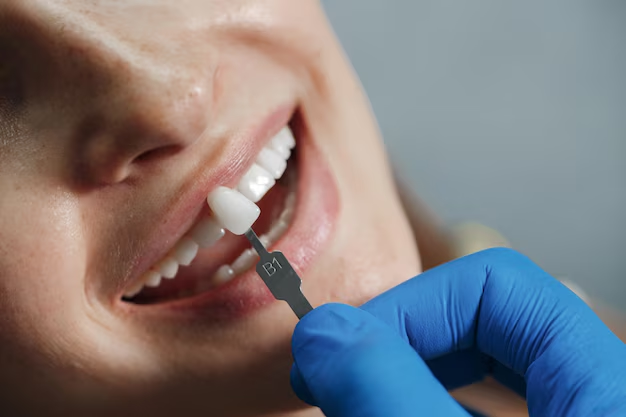
Root canals often get a bad rap. Many people think of them as rare, painful procedures when, in reality, they’re neither uncommon nor something to dread. If you’ve ever wondered why your dentist might recommend a root canal, it’s worth understanding how common these treatments are and why they’re often necessary to save your natural teeth. With the help of an experienced root canal dentist in Hayward, you can address dental issues effectively and comfortably.
What Is a Root Canal?
Let’s start with the basics. A root canal is a dental procedure that treats the inside of a tooth when it becomes damaged or infected. The pulp—the soft tissue inside the tooth containing nerves and blood vessels—can become inflamed or infected due to deep decay, repeated dental procedures, cracks, or trauma.
During a root canal, the dentist removes the infected pulp, cleans and disinfects the area, and fills it to seal the tooth. The goal? To save the natural tooth and prevent the need for extraction.
Root Canals Are Surprisingly Common
If you think root canals are rare, think again. Millions of these procedures are performed every year. There’s a good chance someone you know has had one! Several factors contribute to their frequency, including:
- Poor Oral Hygiene: Failing to brush and floss regularly can lead to cavities that, if left untreated, may reach the tooth’s pulp.
- Untreated Tooth Decay: When decay penetrates deep into the tooth, it can cause infection, making a root canal the best option for treatment.
- Trauma or Injury: Accidents, like chipping or cracking a tooth, can expose the pulp to bacteria, requiring a root canal to protect the tooth.
- Grinding or Clenching Teeth: Over time, excessive grinding (bruxism) can wear down the enamel and lead to issues that might necessitate a root canal.
Why Root Canals Are Necessary
The purpose of a root canal is simple: to save a tooth that might otherwise need to be pulled. Losing a tooth isn’t just a cosmetic concern—it can lead to a range of issues, including shifting teeth, bite problems, and bone loss in the jaw.
Root canals allow you to keep your natural tooth, which is always preferable to artificial replacements like implants or bridges. Modern dental techniques make root canals much more comfortable than their reputation suggests.
“Root canals aren’t the terrifying procedure they’re often thought to be— they are common, effective treatments that preserve your natural teeth and prevent further dental complications.”
— Dr. Alag, DDS, FAGD, Fab Dental Hayward.

Signs You Might Need a Root Canal
Not everyone recognizes the warning signs of a problem that could require a root canal. Here are some red flags to watch out for:
- Persistent Tooth Pain: Pain that doesn’t go away, especially when chewing or biting, could indicate an issue with the pulp.
- Sensitivity to Hot or Cold: If your tooth aches after exposure to hot or cold foods and drinks, it could signal damage to the nerve.
- Swelling or Tenderness: Swelling in the gums near a tooth may indicate infection.
- Darkened Tooth Color: A tooth turning gray or dark may mean the pulp is damaged or dying.
- Pimple on the Gums: This could be a sign of an abscess, often requiring a root canal.
The Modern Root Canal Experience
Thanks to advancements in dental technology, root canals are now quicker and more comfortable than ever. Forget the outdated myths about unbearable pain. With local anesthesia and specialized tools, most patients find the procedure no more uncomfortable than getting a cavity filled.
During the treatment, your dentist will ensure you’re relaxed and pain-free. They’ll also provide aftercare instructions to help heal and ensure your tooth stays healthy.
Preventing the Need for Root Canals
While root canals are highly effective, prevention is always better than treatment. Here are some tips to keep your teeth healthy and avoid needing one:
- Brush and Floss Daily: A consistent oral hygiene routine can prevent cavities and gum disease.
- Visit Your Dentist Regularly: Regular check-ups allow your dentist to catch problems early before they worsen.
- Wear a Mouthguard: If you grind your teeth at night or play contact sports, a mouthguard can protect against damage.
- Eat a Healthy Diet: Avoid sugary foods and drinks that can contribute to tooth decay.
Even with the best care, issues can arise. That’s why having a trusted root canal dentist in Hayward is so important.
Why Choose a Local Root Canal Specialist
When it comes to root canals, expertise matters. A skilled root canal dentist has the training and experience to make the procedure as smooth as possible. Choosing a local dentist also makes follow-up visits more convenient for routine check-ups or post-treatment care.
If you live in Hayward or nearby, finding a local specialist means you’ll have access to care right when needed. Dental emergencies don’t wait; having someone nearby can save you time and stress.
FAQs Root Canals
What exactly is involved in a root canal procedure?
A root canal involves removing the infected pulp (the soft tissue inside the tooth), cleaning and disinfecting the area, and then filling and sealing the tooth to prevent further infection. This helps save the tooth from extraction.
Why are root canals more common than people realize?
Root canals are common due to factors like untreated cavities, tooth decay, trauma (such as cracks or chips), and habits like grinding teeth. If the infection reaches the tooth’s pulp, a root canal is often the best solution to save the tooth.
How can I tell if I need a root canal?
Warning signs include persistent tooth pain, sensitivity to hot or cold, swelling around the gums, darkened tooth color, or a pimple-like bump on the gums. These symptoms could signal an infection inside the tooth that may require a root canal.
Are root canals painful?
Modern root canal procedures are generally not painful. Local anesthesia is used to numb the area, ensuring the procedure is comfortable. Post-treatment discomfort is typically mild and can be managed with over-the-counter pain relievers.
Can a root canal help avoid tooth extraction?
Yes! The primary goal of a root canal is to save a tooth that is damaged or infected. Without a root canal, the tooth may need to be extracted. A root canal preserves the tooth, helping to prevent shifting, bite issues, and bone loss.
How can I prevent needing a root canal in the future?
To reduce the risk of needing a root canal, maintain good oral hygiene by brushing and flossing daily, visiting your dentist regularly, wearing a mouthguard if you grind your teeth or play sports, and avoiding sugary foods and drinks that contribute to tooth decay.
Final Thoughts
Root canals aren’t as rare or scary as many people think. They’re a common and highly effective solution for saving damaged teeth. With modern techniques, they’re also more comfortable than ever.
If you’re experiencing symptoms like tooth pain or sensitivity, don’t ignore them. A quick visit to a root canal dentist in Hayward could be the first step toward protecting your smile.







